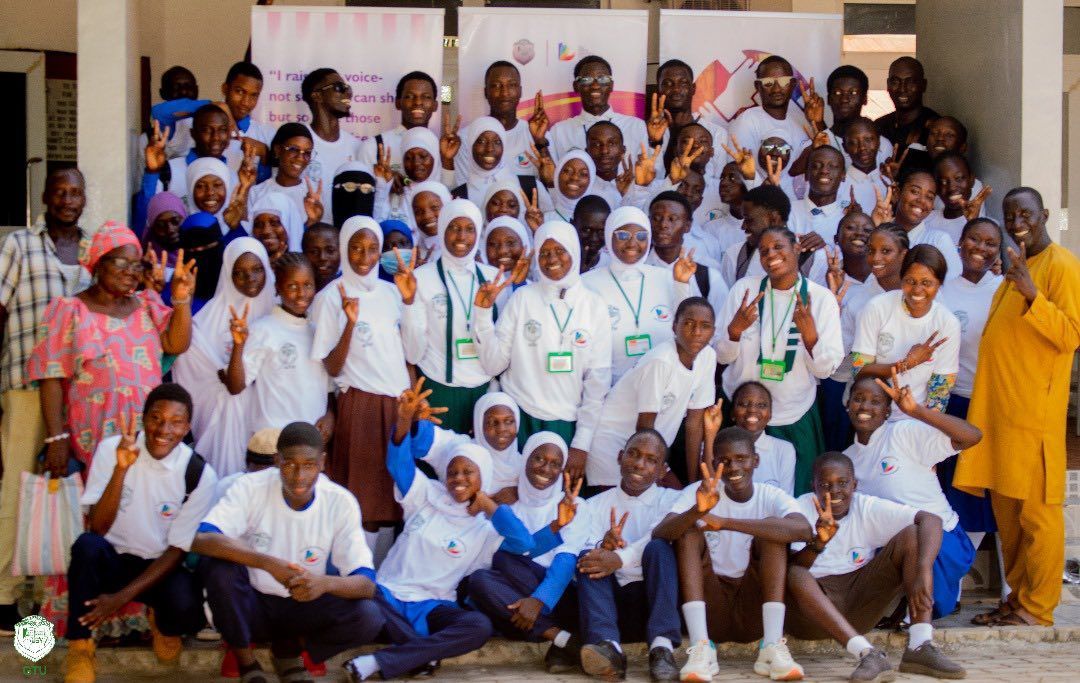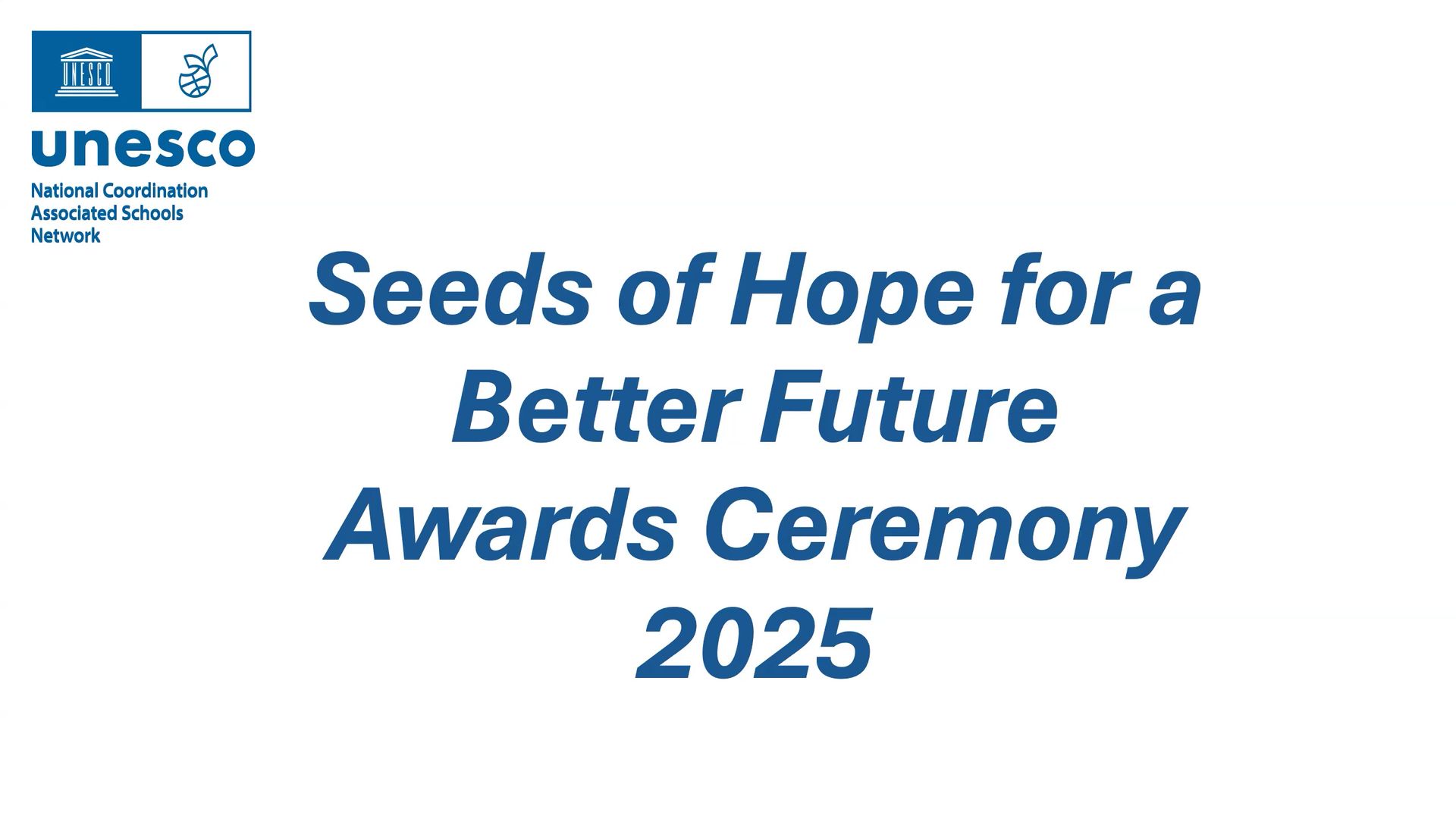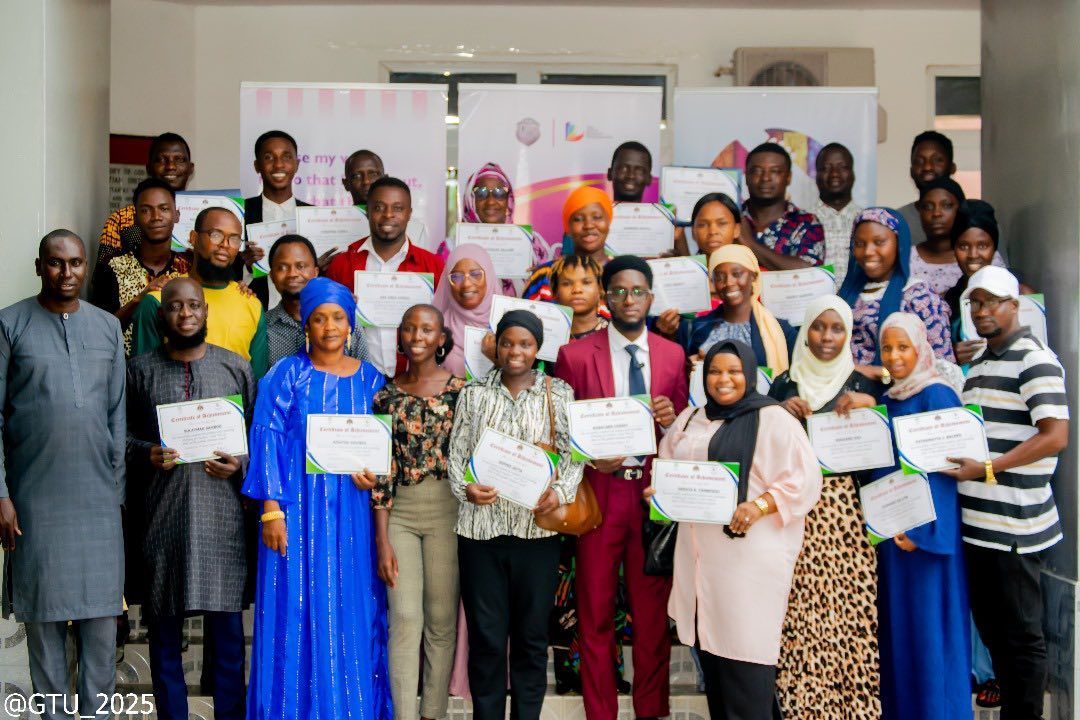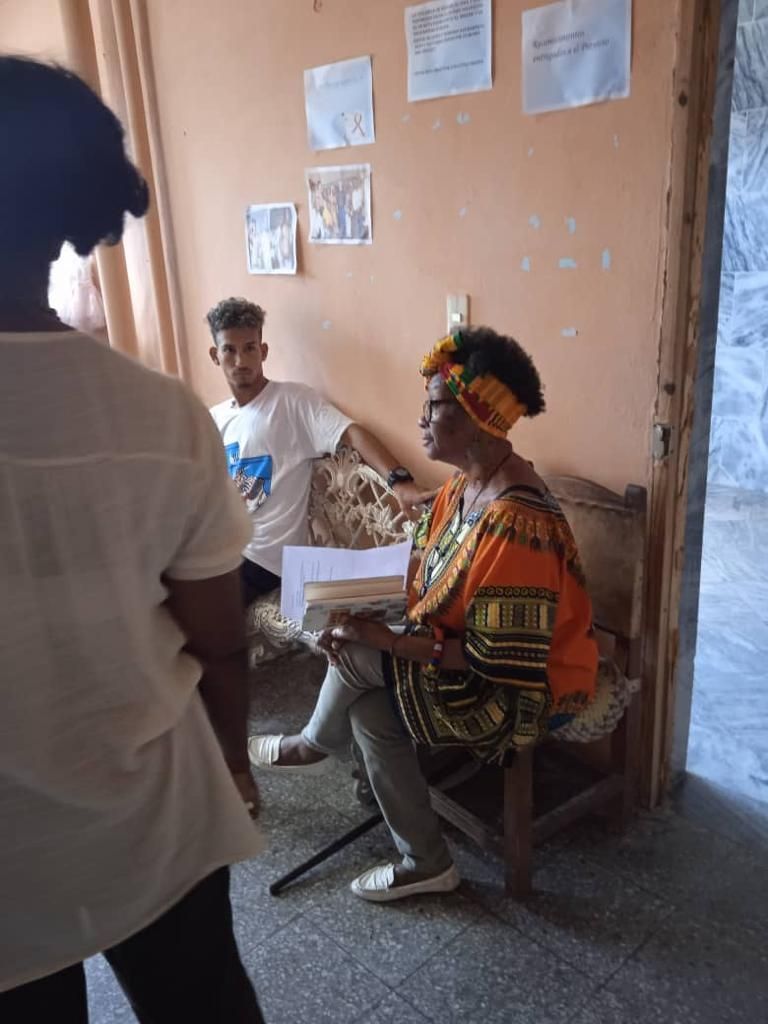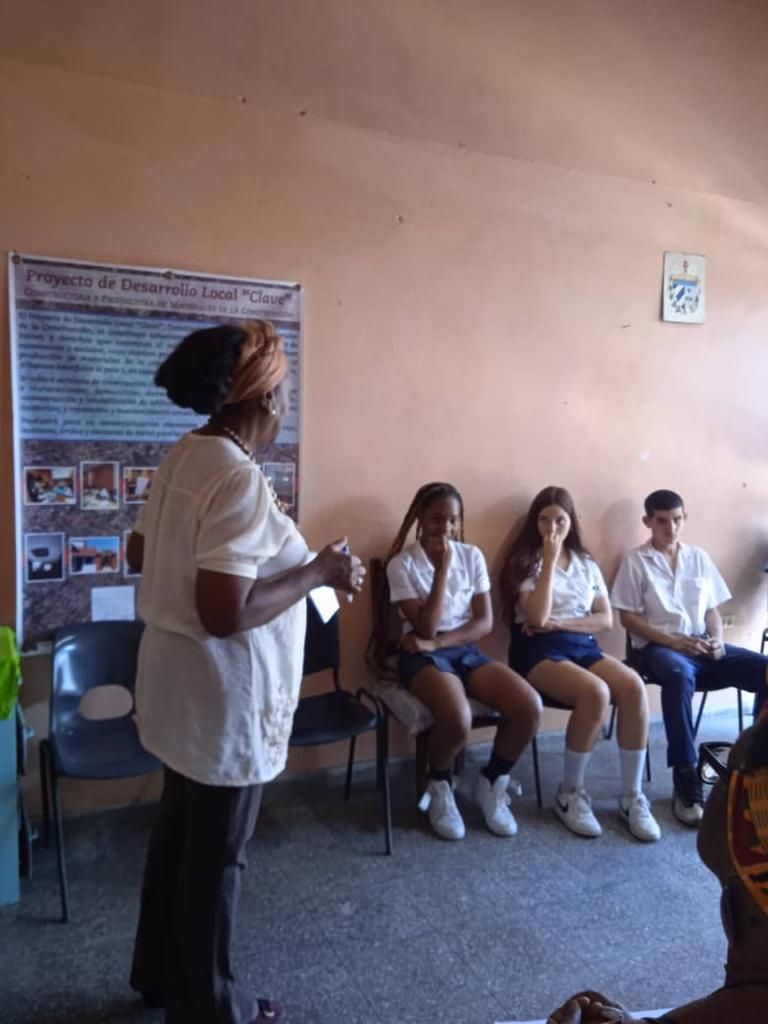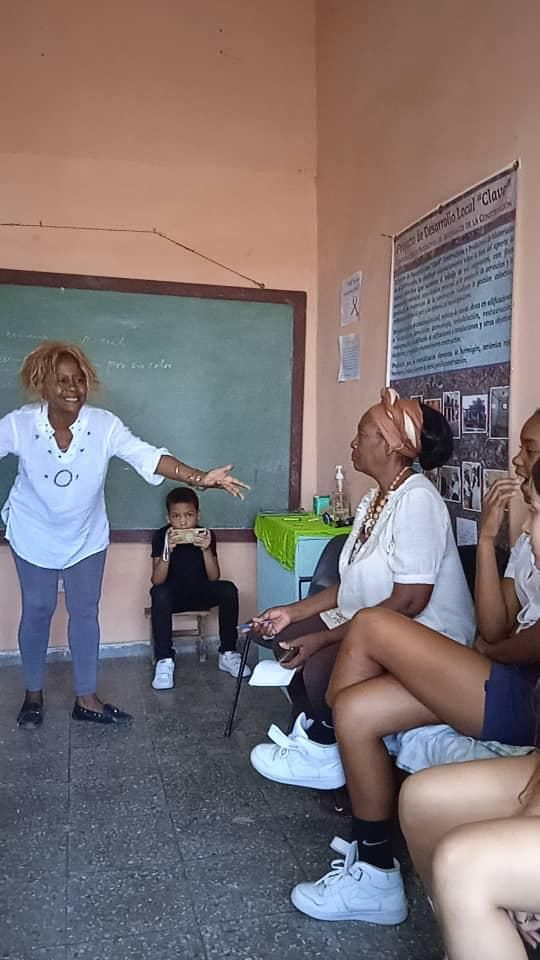A workshop to tackle racial stigma and discrimination in Cuba
Cuba has a complex history of racial issues, including slavery and colonialism. These historical legacies can still influence social dynamics and racial attitudes today. Promoting racial equality and tolerance is essential for building a harmonious and cohesive society and enabling all children to access quality education. The Steve Sinnott Foundation believes that workshops can empower young people to challenge discriminatory attitudes and contribute to a more inclusive future. Addressing racial stigma and discrimination aligns with the principles of human rights, equality, and social justice. It reinforces the importance of treating all individuals with dignity and respect, regardless of their race or ethnicity.
The workshop
On May 18th, a workshop on racial stigma and discrimination was held for young people aged 16 to 18 in the municipality of Cerro, Havana. It was taught by Dr. Norma Guillard Limonta and Dr. Rosaida Ochoa Soto, and took place at the local development project called CASI (Friendly, Safe, and Inclusive Community), led by activist Leticia Santa Cruz.
The workshop began with an introduction by Leticia Santacruz, who explained the ‘Clave’ project, which includes the CASI project and the benefits it will bring to the community, along with the developmental opportunities it provides. Dr. Rosaida Ochoa addressed the objectives of the workshop, highlighting the opportunity for the participants to expand their knowledge on the subject of racial stigma and discrimination.
In order to maintain an active and participatory dynamic, an affective-participatory technique called "La Fiesta" (The party) was introduced. Each participant was asked to bring something to the party that starts with the first letter of their name. This interactive technique is used to enhance rapport among the participants, break down barriers and create a pleasant and festive atmosphere.
For the closing of the workshop, participants identifyed the positive, negative, or interesting aspects of what they discovered. As an outcome of the workshop it was agreed that at this age it is necessary to conduct more workshops of this kind, as these are topics not covered in the school curriculum. There was also a significant interest generated in having the project reach out to nearby schools to conduct these workshops.
Discussions from the workshop
"What do you understand by stigma?"
The workshop participants had not heard this word before, so there was silence in the group, and the facilitators had to explain its meaning using examples. They clarified that stigma can be related to various attributes but is a negative perception or judgment that leads to discrimination, social exclusion, and marginalization. Stigmatized individuals or groups are often stereotyped, judged, and treated unfairly due to this perceived difference.
"What do you understand by discrimination?"
One of the workshop participants expressed the idea that it means "treating someone badly". Then several participants offered more words, such as "inferiority", "rejection", "disdain" and the concept of discrimination began to take shape. Their conclusion was: Treating individuals or groups inferiorly based on their origin, ethnicity, religion, or other factors. Norma explained that there are people who are victims of discrimination for various reasons, such as being a woman, black, or living in a poor area, and this is referred to as intersectionality.
"What do you understand by stereotypes?"
The students did not immediately respond to the question, so facilitator Norma supported it with examples. Experiences from members of the ‘Clave’ project were shared, including a participant who narrated her experience of stereotyping, and being stigmatised as a woman wanting to be a bricklayer. Initially, the men in her brigade believed she couldn't do it well, but later they congratulated her and recognized her work. Norma provided the example of a TV series currently airing on Cuban television called "Calendario". This example prompted the participants to mention several characters from the series who have been stereotyped and stigmatised, such as the boy from the eastern part of Cuba who was called "el nagüe".
"Have you ever been discriminated against or stigmatised?”
One participant shared that her classmates called her crazy because she self-harms, and reflected on the rejection she experiences from this, without them knowing the difficult realities she faces at home. A classmate displayed a stigma towards people who get treatment from a psychologist and this was an opportunity to explore the role of psychologists. Another young person shared his difficulties socialising. He acknowledged that he was going through difficult times, appeared shy, and recognized that he was discriminated against, and although he didn’t attribute it to being of Afro-descendant, he did acknowledge the presence of racism.
“How can we manage these challenges?”
Dr. Rosaida shared an anecdote: "When you are born, they give you two baskets: one in your right hand to hold the good things and one in your left hand to hold the bad things. In life, the goal is to fill the basket of good things as much as possible." She asks the group what they would put in the basket of good things. The responses were, "Health", "Love", "Affection".
One asks what to do if the basket of good things becomes full and overflows. Someone else in the group suggests sharing what is inside the basket of good things with other people, and this attitude is reinforced within the group.
Norma mentions some positive actions she has observed in young people helping and supporting the elderly on the street. She shares an example of her own experience on public transportation and asks how many of the participants have similar attitudes. Asking one participant how he feels when he does those things, he responds that he feels good, as if he has done something right. The facilitators highlight this attitude and encourage the participants to engage in similar experiences and reflect on their feelings afterward.
"Do you believe that racial discrimination exists in Cuba?"
The response is affirmative, and examples of racial discrimination in communities and certain jobs, such as in the tourism industry, are provided. Information is given about the ‘National Program Against Racism and Racial Discrimination’, its objectives, and the actions to be taken, including the recovery of historical memory, communication, access to universities for Afro-descendant populations, work in better-paying positions, housing improvements, and youth life projects. This provides the participants with new knowledge about the program.
The ‘Clave’ project also includes the recovery of historical memory. Highlighting the Municipality of Cerro, the vulnerable neighbourhood where they are located, as a place where historical events, locations, and figures that have been little disseminated, are found. This municipality in the past, was an area of illustrious and wealthy individuals.
"Who do you believe is more discriminated against in our communities?"
The group provided different examples of women being mistreated, and it is acknowledged that this is not a completely resolved problem, although there are many spaces for these discussions and some changes are being observed.
“What are your aspirations, what do you want to study in the future?”
It is observed that the trend is to pursue studies in middle-level technical fields that lead to employment opportunities linked to salaries in dollars.
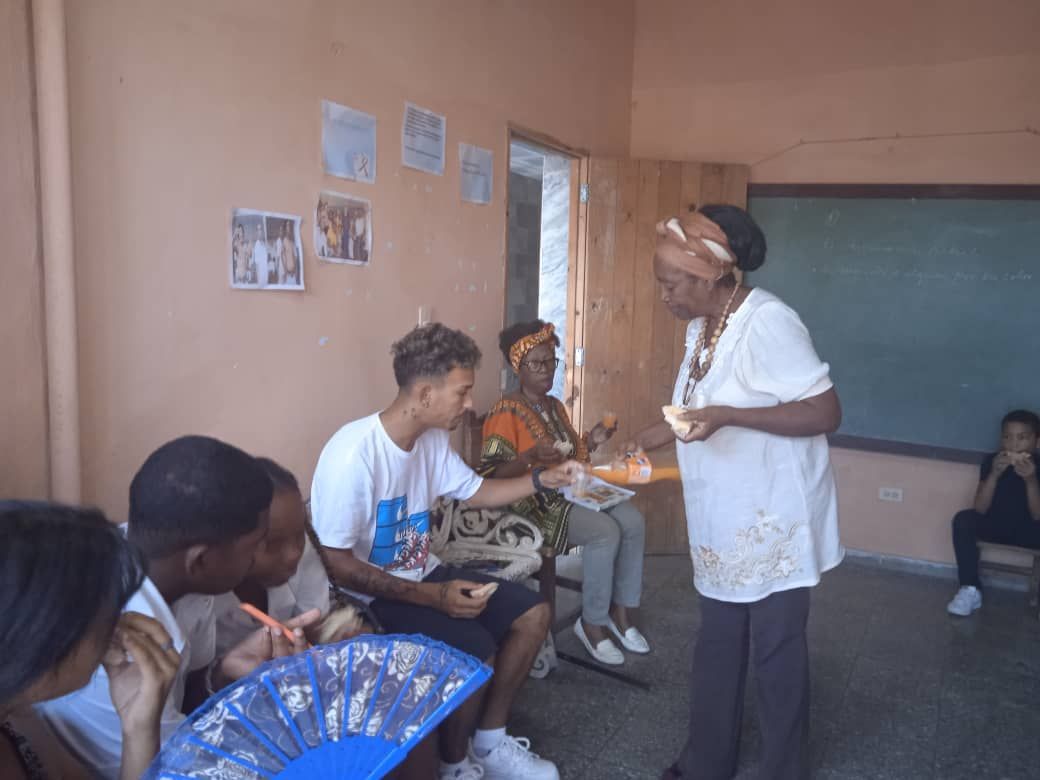
Conclusion
The attendees learned about the concept of stigma, and learned about the history of the Cerro municipality. They found it particularly interesting to discuss the topic of racial discrimination and stigma. We hope this workshop project can be extended to schools to reach more young people.
A big thank you to the organisers, and the instructors: Norma Guillard Limonta and Dr. Rosaida Ochoa Soto.
